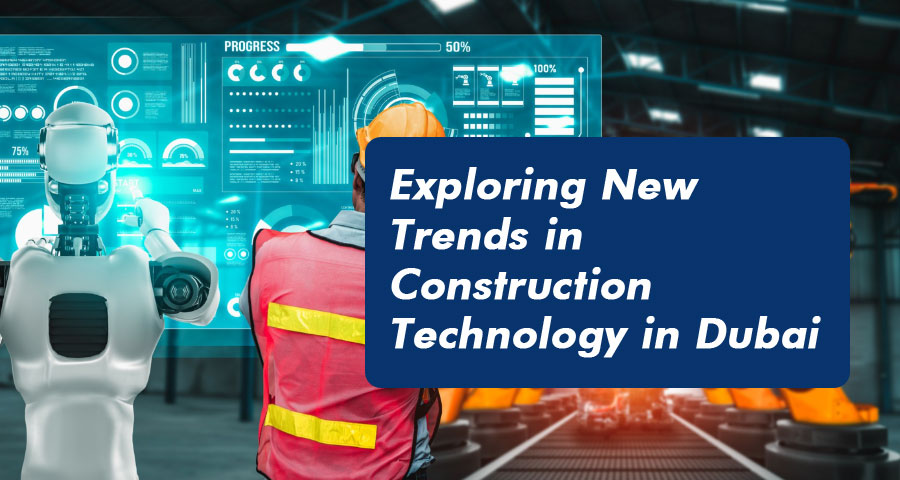Exploring New Trends in Construction Technology in Dubai

Dubai, known for its avant-garde architectural marvels and progressive urban landscape, continues to set new benchmarks in the construction industry with its adoption of cutting-edge technology.
Embracing Sustainable Construction Practices
Sustainability has become a cornerstone of construction projects in Dubai, driven by a collective commitment towards environmental stewardship and resource efficiency. Green building initiatives are gaining traction, with developers integrating eco-friendly materials and renewable energy solutions into their projects. From solar panels adorning skyscrapers to the use of recycled materials in construction, Dubai is at the forefront of sustainable development.
Incorporating Advanced Building Materials
The quest for innovation has led to the widespread adoption of advanced building materials in Dubai's construction projects. Nanotechnology, for instance, is revolutionizing the durability and performance of structures by enhancing the properties of construction materials at the molecular level. Additionally, self-healing concrete and 3D-printed components are reshaping traditional construction methodologies, offering faster, more cost-effective, and sustainable alternatives.
Leveraging Internet of Things (IoT) and Smart Technologies
Dubai's construction industry is undergoing a digital transformation, propelled by the integration of Internet of Things (IoT) and smart technologies. IoT sensors embedded within buildings enable real-time monitoring of structural integrity, energy consumption, and occupant comfort, facilitating predictive maintenance and optimizing resource utilization. Moreover, Building Information Modeling (BIM) software enables stakeholders to visualize and simulate construction projects in a collaborative virtual environment, streamlining the design and construction process.
Revolutionizing Project Management with AI and Robotics
Artificial Intelligence (AI) and robotics are redefining project management practices in Dubai's construction sector, enhancing efficiency, accuracy, and safety. AI-powered algorithms analyze vast datasets to optimize project schedules, predict potential risks, and automate mundane tasks, thereby enabling project managers to make informed decisions swiftly. Furthermore, robotics are increasingly utilized for tasks such as prefabrication, site surveying, and construction automation, mitigating labor shortages and expediting project timelines.
Fostering Collaboration through Virtual Reality (VR) and Augmented Reality (AR)
Virtual Reality (VR) and Augmented Reality (AR) technologies are facilitating enhanced collaboration and visualization throughout the construction lifecycle in Dubai. Stakeholders can immerse themselves in realistic virtual environments to experience proposed designs and identify potential flaws before construction commences. AR applications overlay digital information onto physical spaces, enabling on-site workers to access real-time project data, instructions, and safety guidelines, thereby enhancing productivity and minimizing errors.
Ensuring Safety and Security through Biometric Authentication and Drone Surveillance
Safety and security are paramount in Dubai's construction sites, and technological innovations are bolstering efforts to safeguard workers and assets. Biometric authentication systems, such as fingerprint scanners and facial recognition, ensure restricted access to sensitive areas, while drones equipped with thermal imaging and surveillance cameras monitor construction sites round-the-clock, detecting potential hazards and unauthorized activities in real-time.
Conclusion
Dubai's construction industry is at the vanguard of technological innovation, embracing sustainable practices, advanced materials, smart technologies, and digital solutions to redefine the future of urban development. By leveraging cutting-edge innovations, stakeholders are not only enhancing efficiency and productivity but also fostering a more sustainable and resilient built environment for future generations.
